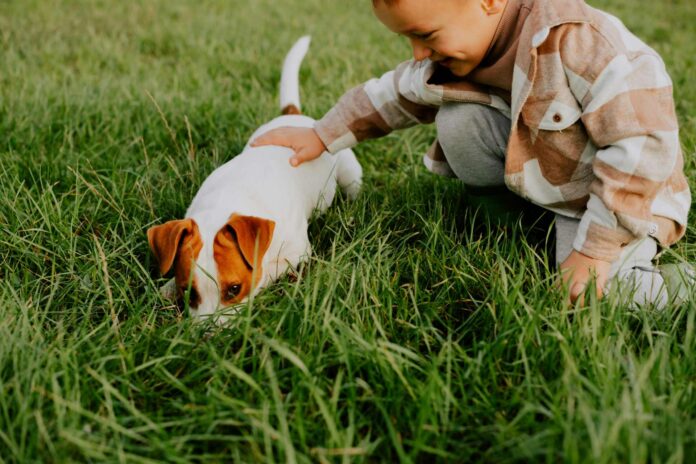Learn how to prevent aggression and promote positive behavior in your puppy through proactive puppy socialization practices, early intervention, and positive reinforcement training techniques.
Introduction to the Importance of Puppy Socialization
Early puppy socialization is a crucial part of a puppy’s development, setting the stage for a well-behaved adult dog. It involves exposing your puppy to a variety of people, animals, environments, and experiences during their critical socialization period, which is typically between 4 and 14 weeks of age.
This exposure helps puppies learn how to interact appropriately and prevents the development of fear and aggression. For example, a puppy that has positive experiences with children during this critical period is less likely to react fearfully or aggressively towards children as an adult.
Proper puppy socialization can significantly impact a dog’s behavior and reduce fear in unfamiliar situations, making it easier for them to adapt to new experiences as they grow. It’s akin to laying a strong foundation for a building; the stronger the foundation, the more resilient the structure.
Click Here To Visit The Online Dog Trainer Now!
Recognizing Signs of Aggression in Puppies
Understanding and recognizing the early signs of aggression in puppies is essential for any pet owner. Aggression can manifest through various body languages, such as raised fur, stiff posture, and direct eye contact.
Additionally, growling, snapping, or biting during interactions can also indicate aggressive tendencies. It’s crucial to address these behaviors early on to prevent them from escalating as the puppy grows.
For instance, if a puppy growls when its food is approached, it’s displaying resource guarding behavior, which can lead to more severe aggression if not addressed promptly.
Early intervention, understanding the triggers, and appropriate training can help manage and modify these behaviors effectively.
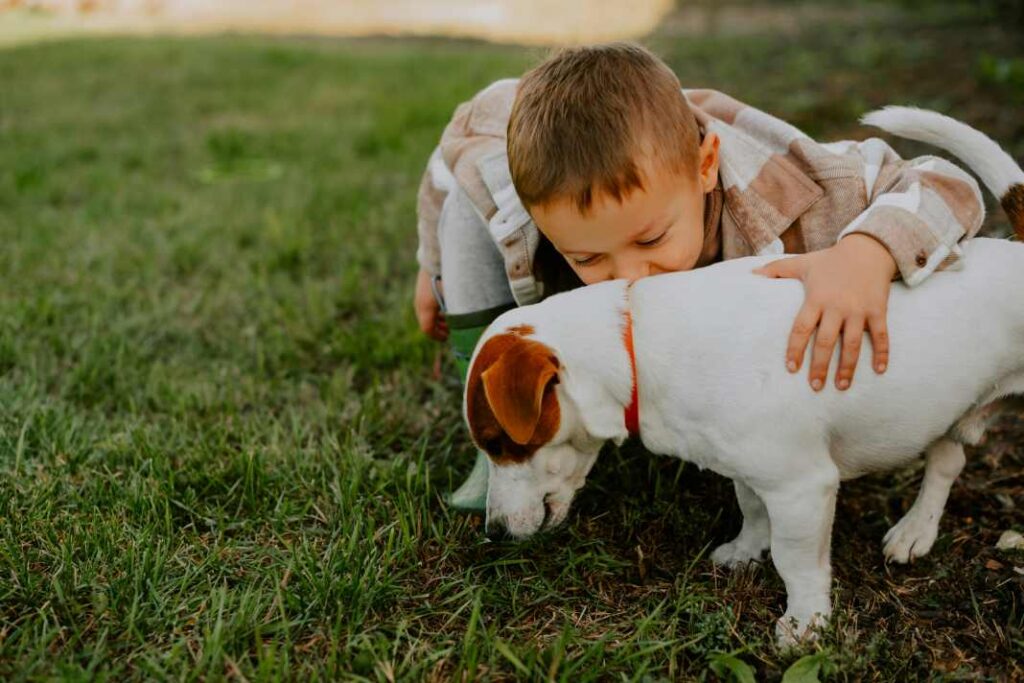
Positive Reinforcement Training Methods
Positive reinforcement training is a powerful method for shaping a puppy’s behavior. This approach focuses on rewarding desired behaviors, which can include treats, praise, toys, or playtime, encouraging the puppy to repeat those behaviors. Consistency in using these techniques is vital to ensure the puppy understands which actions are being rewarded.
An example of positive reinforcement is rewarding a puppy with a treat and verbal praise every time it sits on command. This not only reinforces the desired behavior but also strengthens the bond between the owner and the puppy, making training a positive experience for both.
Addressing Common Behavioral Issues in Dogs
Behavioral issues in dogs, such as aggression, can stem from various factors, including genetics, environment, and past experiences. Lack of puppy socialization, fear, and anxiety are among the common triggers for these behaviors. By understanding the root causes, owners can develop effective strategies for intervention.
A dog that exhibits aggression towards strangers, for example, may do so out of fear. Gradual exposure to new people in a controlled and positive manner can help reduce this fear, teaching the dog that strangers are not a threat.
Tips for Socializing an Aggressive Dog
Socializing an aggressive dog requires patience, understanding, and a gentle approach. Forcing interactions can exacerbate the problem, so it’s crucial to gradually expose the dog to its triggers in a controlled environment.
For example, if a dog reacts aggressively towards other dogs, starting with distant observations and slowly decreasing the distance as the dog becomes more comfortable can be effective.
Seeking guidance from a professional dog trainer or behaviorist is highly recommended for personalized puppy socialization strategies tailored to your dog’s specific needs. They can provide valuable insights and techniques for safely and effectively socializing an aggressive dog.
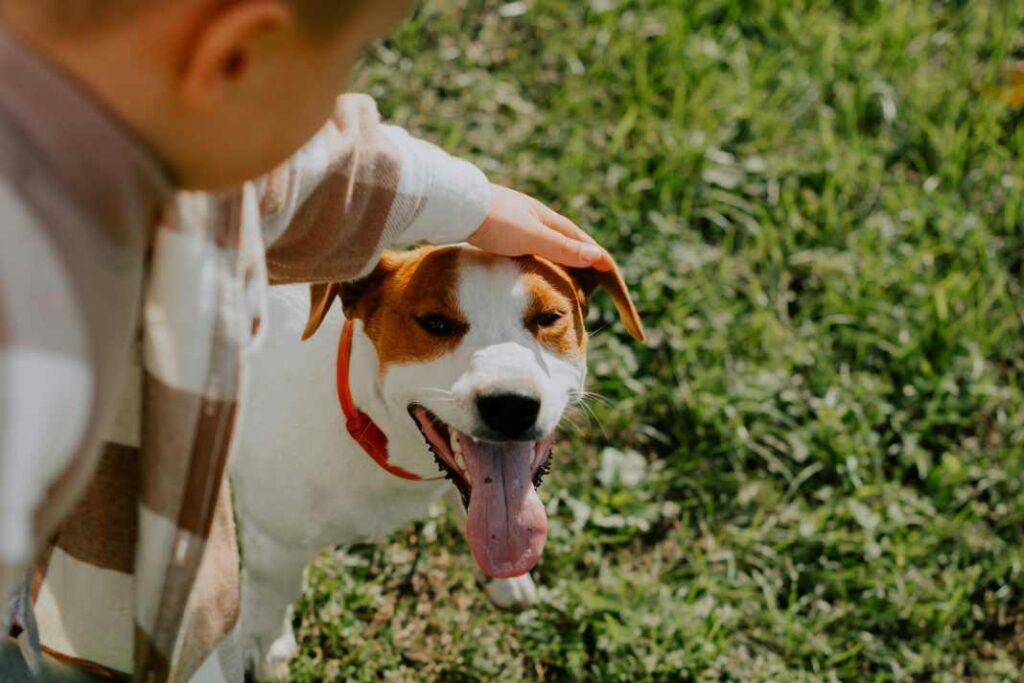
Selecting the Right Puppy and Initial Socialization Steps
Choosing a puppy that matches your lifestyle and expectations is crucial for a successful socialization process. Observing puppies’ behavior within their litter can offer insights into their temperament and social tendencies. A puppy that is neither overly dominant nor too timid is often a good choice for most families.
Early socialization experiences should be positive and confidence-building. Introducing your puppy to new experiences, people, and animals in a gentle and controlled manner sets a positive tone for future interactions and helps build trust and confidence in your puppy.
Socialization Tips and Techniques for Puppies
Exposing puppies to a wide range of environments, sounds, and surfaces helps build their confidence and adaptability. Well-supervised play dates with other puppies or calm adult dogs can teach appropriate social behaviors and enhance your puppy’s social skills.
For instance, playing with a well-behaved adult dog can provide positive role modeling for your puppy, teaching them how to interact appropriately.
Making Lifestyle Adjustments for Effective Socialization
Creating a calm and predictable routine can help reduce stress and anxiety for your puppy, making puppy socialization experiences more positive. Providing mental stimulation through interactive toys and games, along with consistent training and socialization efforts, are key to positively shaping your puppy’s behavior.
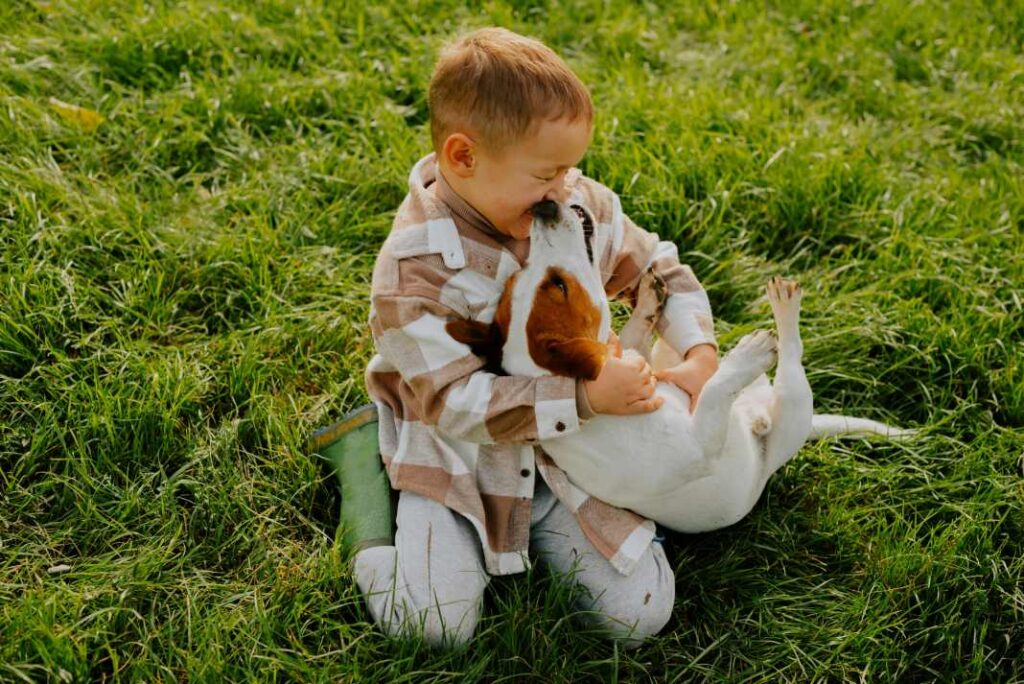
Seeking Professional Help for Aggressive Behavior
When dealing with aggressive behavior, professional dog trainers and behaviorists can offer invaluable support. They can assess your dog’s behavior, develop a tailored training plan, and provide ongoing support to address and modify aggressive behavior effectively.
Early intervention is crucial for preventing future behavioral challenges and ensuring a harmonious relationship between you and your dog.
Conclusion: Ensuring a Well-Socialized and Balanced Puppy
Effective puppy socialization practices lay the foundation for a well-adjusted, confident, and socially adept dog. Through early socialization, positive reinforcement training, and proactive approaches to training, owners can prevent aggression and promote positive behavior in their puppies.
Prioritizing your puppy’s social development and seeking professional assistance when needed are key to fostering a fulfilling and harmonious relationship with your canine companion.
Understanding and Managing Behavioral Issues in Young Dogs
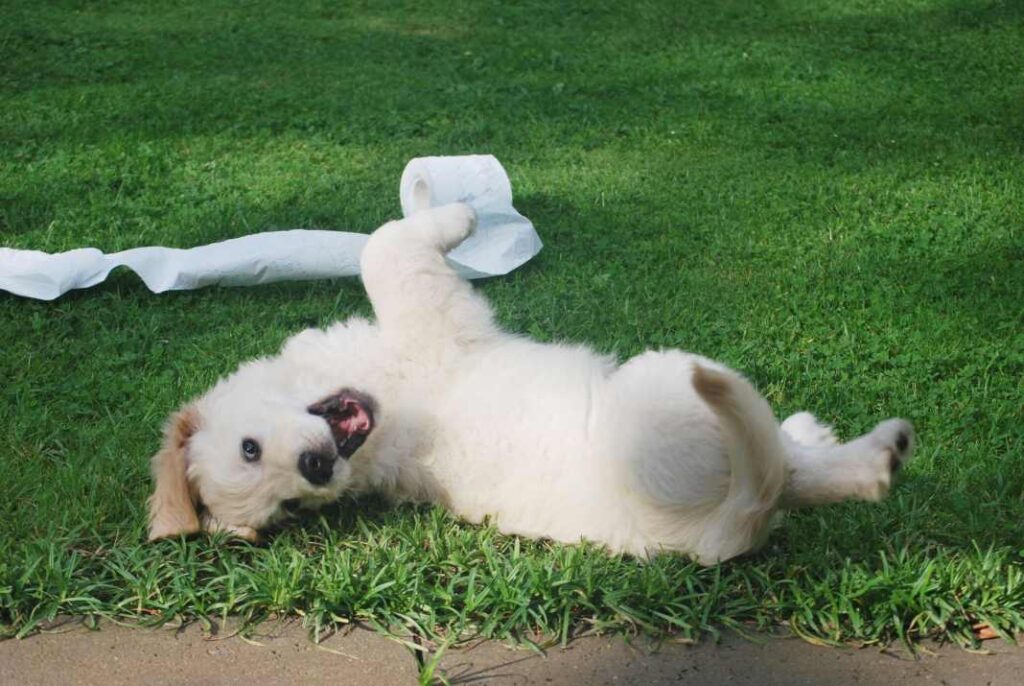
Learn how to identify and address early signs of behavioral issues, common problems in young dogs, their causes, effective training techniques, the role of exercise and environment, seeking professional help, and the importance of proactive management.
Continue reading here: Understanding and Managing Behavioral Issues in Young Dogs



